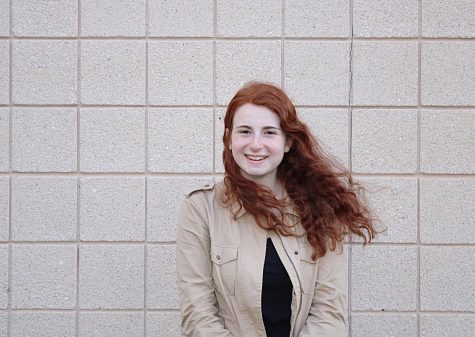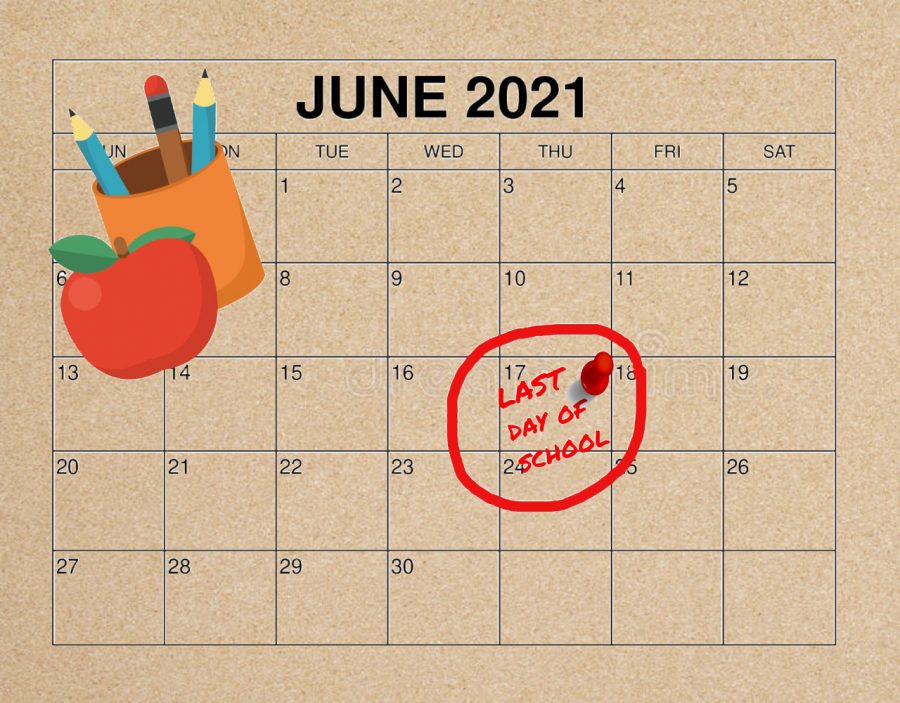Harriton Teachers’ Take on the End of the School Year
This has been a very interesting school year due to the COVID pandemic, changing schedules, and entirely different ways of teaching through Zoom and other streaming services. At the end of these unusual months, I interviewed 8 Harriton teachers to get their take on the end of the school year, and their reflections looking back on the past months of change and new experiences, especially compared to years past.
These teachers include Dr. Fritz (English), Mrs. Wamsley (global studies) Mr. Powers (biology), Mr. Crooke (English), Ms. Weck (chemistry), Mr. Olster (math), Mr. Schweitzer (academic seminar and economics), and Mr. Joseph (music). Here’s what they had to say:
The Harriton Banner: Were you able to cover the same amount of information this year as in years past?
Mrs. Wamsley: Yes! Arguably more. That is in large part to the work teachers did this summer on “essentializing” the curriculum. We were able to be prepared for the required flexibility of this school year, and it has allowed us to remain on pace.
Mr. Schweitzer: Nope, but it will work out in the end. Between focusing on the important stuff, and the AP/IB testing changes we’ll still be able to accomplish it all.
Mr. Joseph: This has been difficult, but I am trying my best to emphasize the important components of what I typically teach.
THB: Do you feel that you were able to connect with your students as well as in past years?
Dr. Fritz: Yes, I actually think that I was able to connect with students more than in the past because I focused heavily on this aspect of my teaching.
Mrs. Wamsley: Yes, and no. In some ways the connections are stronger. Asynchronous Fridays have given me the opportunity to connect and work with students like never before. While our “Learn” intervention time during the school year is very valuable, it only really allowed for minimal access, as time was limited and students were required to use that limited time to access all teachers. The hybrid setting allowed for a somewhat unprecedented degree of connection as well by creating an interesting small group environment. If nothing else, the shared trauma of this school year has in some ways made us more connected. Never has the importance of creating a personal connection or the need to ensure emotional well-being before attempting content been more obvious….
Mr. Powers: What this entire COVID-19 pandemic has shown me over the past year is the need for me, as a teacher, to connect with students more than ever. Placing a large focus of my teaching on connecting with students has certainly taken more effort than in years past. Realizing the importance of this aspect of teaching has allowed us to maintain this connection.
Mr. Schweitzer: Starting virtually made it difficult, I don’t think I got to know students as well or as quickly as I might have in previous years.
Ms. Weck: I do! I was nervous that this would not be the case, but somehow y’all made me fall in love despite this year’s hardships.
THB: Are you worried about any effects this school year might have for students? (No hands-on experiences, less ability for group projects, etc.)
Mrs. Wamsley: As an educator, I am worried about the effects that this year might have on education systems and students across the country in general. But, with regards to my students in my classroom, educationally speaking, I am not worried. While they have lost out maybe on a year of being able to work side-by-side with a buddy in the hallway, they have learned other modes and methods of learning and collaborating that I think will benefit them greatly in their future endeavors.
Mr. Powers: I worry about the mental and physical health aspects that this year has had on our students. Mourning family members, depression, separation from friends, participation in activities, and connecting with other human beings is what I am most worried about for the future years of our students. As far as learning is concerned, our students have been through so many different types of learning this year. Learning how to navigate all of your courses online, while not losing your minds with your siblings or family members. Learning that you need to walk outside for a bit. Learning how to read sources when navigating social media. As far as content in courses goes, I think my students this year are going to be just fine with their biology learnings in the future.
Mr. Crooke: Not at all. Students have gained a great deal of independence this year. The thinking that was necessary occurred on a higher level. It had to.
Ms. Weck: I think “worried” is too strong a term. As chem teachers, students didn’t do as many hands-on labs as in past years; however, students have much more experience with time management due to virtual learning and async Fridays than they would otherwise have. Many of my students have adapted well. Honestly, adaptability (for students and adults) is a more important skill than doing a titration lab.
Mr. Olster: Yes I’m worried, but students are resilient, and whatever effects that happened this year I believe will be overcome throughout the rest of their school years and beyond.
THB: Do you think that this pandemic has caused students to grow more or less than in years past?
Mrs. Wamsley: Again—a little of both. In some ways more; the flexibility, communication, organization, and technology practice that students have had this year has allowed for tremendous growth. My freshmen and sophomores this year are far more prepared for the realities of college and beyond than I certainly ever was in high school. Socioemotional growth, however, may have been stunted for some students; I have had many conversations with students about how hard it is to be back in a full in-person setting and to, in some ways, relearn how to engage in normal in-person interactions.
Mr. Powers: I do believe that students have grown more through this pandemic than in other school years. I commonly ask our fellow teachers if they think this pandemic situation would be comparable to living through The Great Depression or other historically significant time periods. My Grandmother-in-law (you work that one out), was a child during the depression. It steered her towards always finishing all of the food on her plate, out of fear of not always having food. She would always be focused on saving money in all scenarios. I do wonder if this pandemic will have a similar effect in ways that I cannot even imagine.
Mr. Olster: I believe students have grown more. While it might appear as less work, just the fact that you can attend classes from outside of the school building, in other states, I’ve even had students attend class from a moving car many times. I have to imagine that is growth.
Mr. Schweitzer: It’s hard to see these things until they’re farther in the rearview mirror, but I’m optimistic that many of you grew more than you might have—tough times build character if we allow it.
THB: Have you learned any techniques or new ways of teaching that you will keep even after the pandemic is over?
Dr. Fritz: I try more intentionally to interact with every student every class, and I have learned to be more flexible in adjusting lessons and assignments to meet students where they are at currently.
Ms. Weck: Sure did! I’m much more knowledgeable about Google tools. The video labs I created out of necessity for this year will be used in future years with students who are absent on lab days.
Mr. Schweitzer: Although some of you act like you’ve never seen one, the weekly plans are really helpful!
THB: Is there anything else that you would like to share about the end of the school year with the readership of the paper?
Mr. Powers: I think this piece or these questions, more accurately reflect the fear that students are feeling about constantly falling behind their peers. This is a problem that is not unique to Harriton but exists at all high schools. The shame and fears of falling behind or not getting into certain universities is a feeling that seems to haunt all of our students (I even see it in my own daughter at age 12!). The stress and anxiety of this fear, in conjunction with the pandemic, has taken a terrible toll on our students. I do not pretend to have an answer, but maybe the first step is to acknowledge that this is a problem.
Mr. Joseph: I’m excited that my music students will get to perform live at Graduation for the first time since December of 2019!
Mrs. Wamsley: I have been so very impressed by the engagement, work ethic, flexibility, honesty, and kindness of my students this year. This has, without a doubt, been the hardest year of school for most teachers and students. However, the challenge has also brought the possibility for greater tenacity; I’ve seen perseverance and accomplishment from my students to a degree that one doesn’t always have the opportunity to see in a typical school year. While it is important to acknowledge the struggles, it is also important to acknowledge the triumphs. And my students should be very, very proud of the work that they have done this year.
___________
While different teachers definitely have different takes on the end of this whirlwind of a year, one thing seems very clear. Harriton students have grown in so many different ways and will leave this pandemic with better perseverance and a greater ability to adapt to change, and teachers will leave with new skills at connecting with their students and teaching techniques to use in the future.
Even with all of the horrible realities we’ve had to face this year, there might just be a silver lining that we’ll be able to see in the rearview mirror. Thank you to all the Harriton teachers and staff for working so hard to support students this year! You’re our heroes!

Jenna, an IB senior, is so excited for her fourth and final year at The Harriton Banner, this year as Executive Editor. Along with writing articles, Jenna...


